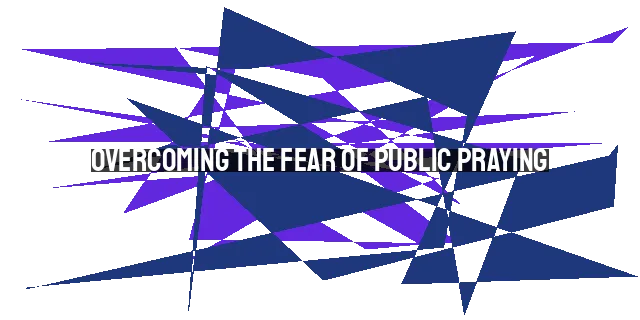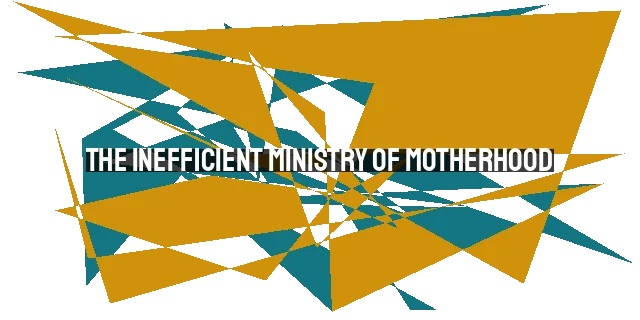The Divine Feminine: Embracing God as Both Father and Mother
Our Mother Who Art in Heaven
When it comes to understanding the nature of God, we often default to using masculine language and metaphors. But what if God transcends gender? What if God is not solely male or female, but encompasses both and neither? These are the questions that arise when we explore the concept of God as both Father and Mother.
The Shack and the Divine Feminine
In the popular novel and movie adaptation, The Shack, one of the lead characters is a woman named Papa, who represents God the Father. The portrayal of God as a woman challenges traditional gender roles and raises important theological questions.
In the novel, Papa says, "I am neither male nor female, even though both genders are derived from my nature. If I choose to appear to you as a man or woman, it's because I love you. For me to appear to you as a woman and suggest you call me Papa is simply to mix metaphors, to help you break free from your religious conditioning."
This statement challenges our preconceived notions of God as exclusively male. It suggests that God can take on any form, including that of a woman, in order to relate to us and break through the barriers of our religious conditioning.
Gender Language and Divine Titles
One of the main issues raised by the portrayal of God as a woman is the use of gender language and divine titles. In many religious traditions, God is referred to primarily using masculine pronouns and titles such as "Father" and "Lord." This raises the question of whether we should be more inclusive and use gender-blended language when referring to God.
Using gender-neutral language for God helps us to recognize that God is beyond human categories of gender. It reminds us that God encompasses both masculine and feminine qualities, and that both genders are derived from God's nature. By using gender-blended language, we can avoid reinforcing traditional gender stereotypes and open ourselves up to a more expansive understanding of God.
Biblical References to the Divine Feminine
While the concept of God as Mother may be challenging for some, there are biblical references that support this idea. In the book of Isaiah, for example, God says, "As a mother comforts her child, so I will comfort you" (Isaiah 66:13). This image of God as a comforting mother highlights the nurturing and compassionate qualities often associated with motherhood.
In the New Testament, Jesus also uses maternal imagery to describe himself. In the Gospel of Matthew, Jesus says, "Jerusalem, Jerusalem, you who kill the prophets and stone those sent to you, how often I have longed to gather your children together, as a hen gathers her chicks under her wings" (Matthew 23:37). Here, Jesus compares himself to a mother hen, emphasizing his desire to protect and care for his people.
These biblical references remind us that God's nature is not limited to masculine imagery. They invite us to expand our understanding of God to include both masculine and feminine characteristics.
Embracing the Divine Feminine
Embracing the concept of God as both Father and Mother can have profound implications for our relationship with God and our understanding of ourselves.
When we think of God as a mother, we are reminded of the nurturing, compassionate, and comforting qualities associated with motherhood. We can find solace in the image of a God who loves and cares for us like a mother cares for her children.
Embracing the divine feminine also challenges us to reconsider our own gender stereotypes and biases. It reminds us that both men and women are made in the image of God and that we all have the capacity to embody both masculine and feminine qualities.
Furthermore, recognizing the divine feminine can help us to address the historical marginalization of women in religious contexts. By acknowledging that God encompasses both genders, we can work towards greater equality and inclusivity within our faith communities.
The Future of Gender and God
As we move into the future, it is essential to continue exploring and expanding our understanding of God's nature. The concept of God as both Father and Mother challenges us to let go of rigid gender roles and embrace a more inclusive and expansive view of the divine.
By using gender-blended language and metaphors for God, we can create a more inclusive and welcoming space for all people, regardless of their gender identity. This shift in language and imagery can help us to break free from our religious conditioning and open ourselves up to a deeper and more authentic relationship with the divine.
As we continue to wrestle with the theological and social implications of the divine feminine, let us remember that God is beyond our understanding. God transcends human categories and can reveal Godself to us in ways that challenge and expand our understanding. Let us be open to the mystery and beauty of a God who is both Father and Mother, and who invites us into a deeper relationship of love and connection.



POST COMMENT
For post a new comment. You need to login first. Login
COMMENTS(0)
No Comment yet. Be the first :)